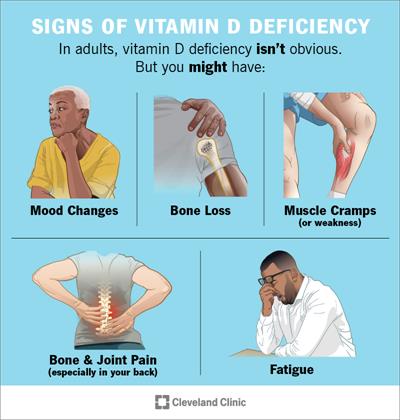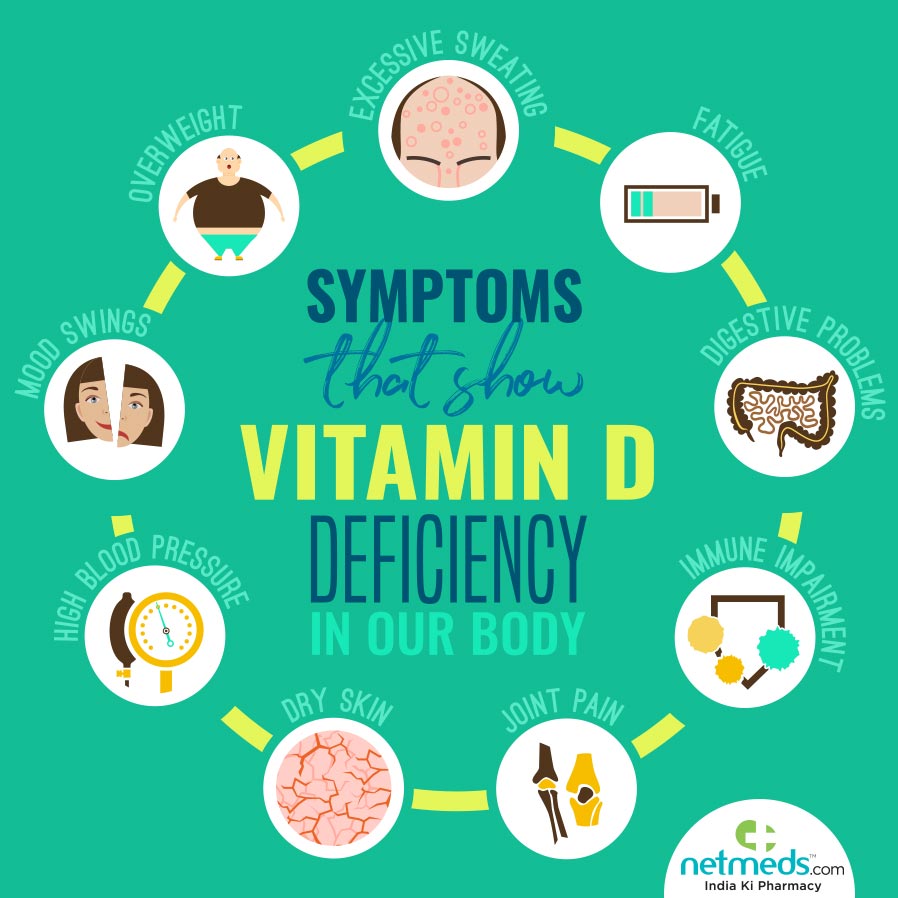A lack of sunlight exposure and specific disorders commonly cause vitamin D deficiency. Symptoms may include fatigue, bone pain, muscle weakness, and depression.
Treatment options for vitamin D deficiency include sunlight exposure and supplementation. Vitamin D plays a crucial role in maintaining the health of our bones, muscles, and immune systems. Unfortunately, many people suffer from
We will explore the causes, symptoms, and treatment options for vitamin D deficiency. By understanding this condition better, you can take proactive steps to prevent or address vitamin D deficiencies, ensuring overall wellness and vitality. So, let’s dive in and uncover everything you need to know about vitamin D deficiency.
Causes Of Vitamin D Deficiency
Various factors, including a lack of exposure to sunlight and specific disorders, can cause vitamin D deficiency. Let’s explore these causes in detail:
Lack Of Exposure To Sunlight
A major cause of vitamin D deficiency is inadequate exposure to sunlight. When our skin is exposed to sunlight, it produces vitamin D naturally. However, many people, especially those who live in northern latitudes or spend most of their time indoors, may not get enough sunlight. This can result in a deficiency of vitamin D.
Disorders That Cause Deficiency
Aside from lack of sunlight exposure, certain disorders can also lead to vitamin D deficiency. These disorders include:
- Malabsorption syndromes: Disorders such as celiac disease, inflammatory bowel disease, and cystic fibrosis can impair the absorption of vitamin D from the diet, leading to deficiency.
- Kidney disorders: Some kidney conditions can affect the conversion of vitamin D to its active form, causing a deficiency. Chronic kidney disease and kidney failure are examples of such disorders.
- Obesity: People with obesity may have lower levels of vitamin D in their blood, as the vitamin may become sequestered in fat cells and not readily available for use by the body.
- Aging: Our ability to produce vitamin D in the skin decreases as we age. This can contribute to vitamin D deficiency in older adults.
These are a few examples of disorders that can cause vitamin D deficiency. If you suspect a disorder affecting your vitamin D levels, it is essential to consult with a healthcare professional for proper diagnosis and treatment.

Symptoms Of Vitamin D Deficiency
Vitamin D deficiency symptoms may include fatigue, poor sleep, bone pain, depression, hair loss, muscle weakness, loss of appetite, and susceptibility to illness. Proper exposure to sunlight and a balanced diet can help prevent and treat vitamin D deficiency.
Fatigue
One of the common symptoms of vitamin D deficiency is fatigue. If you’re constantly tired and lacking energy, it could be a sign that your body lacks sufficient vitamin D.
Bone Pain Or aches
Another symptom of vitamin D deficiency is bone pain or achiness. This can manifest as general discomfort or a dull bone ache, particularly in the back, legs, or joints. Pay attention to any lingering pain or soreness in these areas.
Depression Or Feelings Of Sadness
Vitamin D plays a role in the production of serotonin, a neurotransmitter that helps regulate mood. Therefore, a deficiency in vitamin D can contribute to feelings of depression or sadness. If you find yourself experiencing prolonged periods of low mood, it may be worth considering vitamin D deficiency as a potential cause.
Hair Loss
Although hair loss can be attributed to various factors, vitamin D deficiency is one of them. The lack of vitamin D can lead to hair follicles becoming dormant, resulting in hair loss. If you’re experiencing excessive shedding or thinning hair, it’s essential to consider your vitamin D levels.
Muscle Weakness
Weakness in the muscles is another symptom of vitamin D deficiency. This can manifest as difficulty performing physical activities, such as climbing stairs or carrying heavy objects. If you notice a decline in muscle strength, it’s worth checking your vitamin D levels.
Loss Of Appetite
A vitamin D deficiency can also result in a loss of appetite. If you find yourself consistently uninterested in food or experiencing a decreased appetite, it may be a symptom of vitamin D deficiency.
Increased Susceptibility To Illness
One of the crucial functions of vitamin D is to support the immune system. Therefore, a deficiency in vitamin D can lead to a weakened immune system, making you more susceptible to illnesses such as colds, flu, and infections. If you frequently fall ill, it’s essential to consider the possibility of vitamin D deficiency.
Treatment For Vitamin D Deficiency
Treatment for vitamin D deficiency involves increasing sun exposure, making dietary changes, and supplementation.
Increasing Sun Exposure
Increasing sun exposure is one of the most effective ways to treat vitamin D deficiency. This is because the primary source of vitamin D is sunlight. Spending about 15 minutes outside in the sun without sunscreen can help the body produce vitamin D naturally. However, it is essential to balance sun exposure with skin protection to prevent sunburn and other skin damage.
Dietary Changes
In addition to sun exposure, making dietary changes can help increase vitamin D levels. Foods naturally rich in vitamin D include fatty fish like salmon and mackerel, egg yolks, and fortified foods like milk and cereal. Including these foods in your diet can help ensure an adequate vitamin D intake.
Supplementation
Supplementation is another standard treatment for vitamin D deficiency. This involves taking vitamin D supplements to make up for the deficiency. Supplements are available in different forms, including tablets, capsules, and liquid drops. It is essential to consult with a healthcare professional to determine the appropriate dosage and type of supplement for your specific needs.
Overall, treatment for vitamin D deficiency involves a combination of increasing sun exposure, making dietary changes, and supplementation. These treatment strategies can help raise vitamin D levels and improve overall health.


Frequently Asked Questions Of Vitamin D Deficiency – Causes, Symptoms And Treatment
What Is The Most Common Cause Of Vitamin D Deficiency?
The most common cause of vitamin D deficiency is a lack of exposure to sunlight. Certain disorders and a deficient diet can also cause it. Vitamin D deficiency symptoms include fatigue, bone pain, muscle weakness, and hair loss.
Treatment options include increasing sunlight exposure and incorporating vitamin D-rich foods into the diet.
What Happens When Your Vitamin D Is Low?
When your vitamin D is low, it can cause thin, brittle, or misshapen bones. It may also affect insulin production, immune function, and increase the risk of chronic diseases and cancer. Symptoms may include fatigue, poor sleep, bone pain, depression, hair loss, muscle weakness, and frequent illness.
What Are 5 Signs Of Vitamin D Deficiency To Not Ignore?
Signs of vitamin D deficiency: fatigue, poor sleep, bone pain, depression, hair loss, muscle weakness, loss of appetite, frequent illness.
What Organ Causes Vitamin D Deficiency?
A lack of exposure to sunlight or certain disorders can cause vitamin D deficiency. It can lead to weakened bones, muscle weakness, and other symptoms.
Conclusion
Ensuring adequate levels of vitamin D is crucial for maintaining optimal health. From the causes of vitamin D deficiency, such as lack of sunlight exposure and specific disorders, to symptoms like bone pain, fatigue, and muscle weakness, it is evident that this deficiency can significantly impact our well-being.
However, the proper treatment, which may include sunlight exposure and supplementation, can combat this deficiency and improve overall health. Prioritizing vitamin D intake and addressing any deficiency can contribute to a more robust immune system, improved bone health, and enhanced overall well-being.

